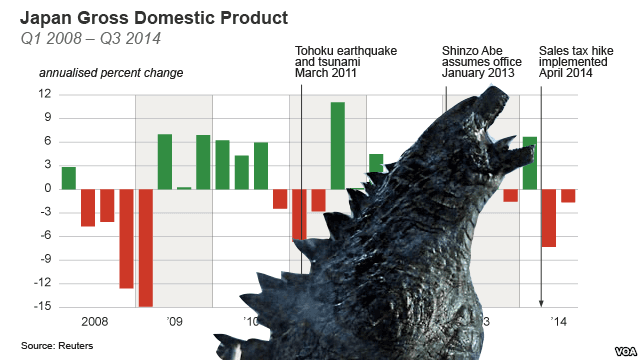As President Barack Obama meets with Prime Minister Shinzo Abe and other Japanese officials in Tokyo this week, it is without a doubt that his main objective will be to make progress on the Trans-Pacific Partnership trade agreement (or TPP for short). Negotiations to conclude the ambition trade pact – which includes 12 nations in North America, South America, and Asia – are on hold until the US and Japan make progress over the issue of market access for agricultural products and automobiles.
Despite the snag in negotiations, there is little doubt that Abe is ready to let the market flood gates open. In an Op-Ed, titled “The Second Opening of Japan,” Abe stated that “Japan must open its economy further and become a country that actively incorporates capital, human resources, and wisdom from abroad. Japan must be a country capable of growing by channeling the vitality of a growing Asia.”
Earlier this year, the Abe administration released a number of Cabinet-sponsored reform bills as part of his “third arrow,” which is the last pillar of Abenomics, the Prime Minister’s economic policy program (with monetary easing and fiscal stimulus being the first and second arrows). Passing a number of these key bills will be necessary for Japan to open its market to foreign competitition and continue TPP negotiations. As of late, the third arrow reform efforts have been widely panned as too slow and lacking focus and punch.
Of the 33 Cabinet-sponsored structural reform bills that the government will likely enact during this Diet session, there are only about seven that will have a significant impact on opening Japanese markets to foreign competition. The most significant seven bills can be divided into two broad categories: reduction of subsidies for rice cultivation and enhancement of labor market flexibility.
Cabinet Bills #49 and 50 will phase out the rice price support program by putting in place income support for farmers. This would be an enormous step for both Japan and TPP negotiations, as many analysts looked at Tokyo’s rice protection policies as one of the hardest nuts to crack during trade negotiations. These reforms are the necessary first few steps to open up Japanese long-protected farm industry. Spectators have commented that the TPP negotiations have been progressing slowly because of US-Japan disagreements over market agricultural products (and automobiles).
Not only has labor market inflexibility negatively affected Japan’s corporate competitiveness, but it has also kept foreign workers from landing jobs in Japan. There are five cabinet bills (#3, 56, 48, 32, and 55) that take on this issue head on. Specifically, Cabinet Bill #55 reevaluates the system for prioritizing skilled foreign workers (including a shorter minimum history of residence requirement for permanent resident status).
Although these reforms have been met with controversy, the Abe administration will be able to use the TPP as political cover, push the reforms through with the LDP’s majority in the Diet, and come out more-or-less unscathed.
But despite all of this progress, Japan’s economy minister Akira Amari still told reporters that the US and Japan remain “at a considerable distance” over trade in farm products. It is true that the two countries still have a number of issues to resolve before trade negotiations get back on track, and it is unlikely that Obama will be able to resolve these differences during his visit to Japan this week; however, all hope should not be lost.
By making a concerted effort to remove protectionist policies on rice farming, the Japanese government is showing that they are more than willing to make political sacrifices in order to make progress in the name of trade negotiations. It isn’t outside of the realm of possibility that the Abe administration’s next steps will be to tackle other market access issues.
These types of reforms are new and unheard of in Japan. It takes time for the Japanese government – and requires a substantial amount of political capital -- to open long-protected markets, remove non-tariff barriers, and make meaningful reform. There has been recent progress, and with Abe at the helm, there will continue to be progress.



